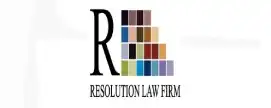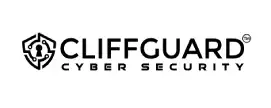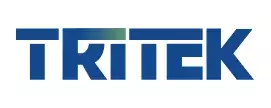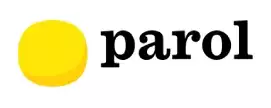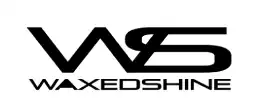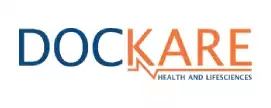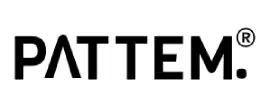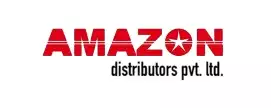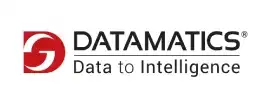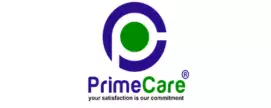KOSHER Certification
Implementation, Consulting, Auditing & Certification at one place . We focus on taking your business to new heights.
Request a Call Back
Get Free Consultation
Have any Questions?
Mail us Today!
Contact@b2bcert.com
Overview
KOSHER certification is a process by which a food product is certified as being in compliance with Jewish dietary laws, known as kashrut. The certification is granted by a KOSHER certifying agency , which inspects and supervises the food production process to ensure that it meets the strict standards of kashrut.
Once a food product has been certified as KOSHER , it is typically marked with a KOSHER symbol, such as the letter “K” inside a circle or the word “KOSHER.” This helps consumers identify which products are KOSHER-certified and can be consumed in accordance with Jewish dietary laws.
Obtain KOSHER certification
If you are a food manufacturer or producer looking to obtain KOSHER certification for your products, there are a few steps you will need to follow:
- Contact a KOSHER certifying agency : There are many KOSHER certifying agencies that can provide KOSHER certification for your products. Look for an agency that is reputable and recognized within the Jewish community.
- Submit an application: Once you have identified a KOSHER certifying agency , you will need to submit an application for certification. This will typically involve providing information about your products, ingredients, production process, and any relevant certifications or accreditations.
- Schedule an inspection: After your application has been reviewed, a representative from the KOSHER certifying agency will likely schedule an inspection of your production facility to ensure that it meets the requirements for KOSHER certification .
- Make any necessary changes: Based on the results of the inspection, you may need to make changes to your production process or equipment in order to meet the standards for KOSHER certification .
- Obtain certification: Once your production process has been deemed compliant with KOSHER standards, you will receive certification from the KOSHER certifying agency . You will then be able to use the KOSHER symbol on your products and market them to consumers who observe Jewish dietary laws.
It’s important to note that obtaining KOSHER certification can be a lengthy and complex process, and may require ongoing inspections and monitoring to ensure continued compliance with KOSHER standards.
Benefits
Instant Business Growth
Management
Reduced waste
Reduces errors
Improved delivery and production schedule
Annual evaluations uphold standards.
Why is KOSHER certification is required?
KOSHER certification is required by individuals who observe Jewish dietary laws, known as kashrut, which prescribe which foods may be eaten and how they must be prepared and served. The certification ensures that a food product meets these strict dietary laws and is considered fit for consumption by observant Jews.
In order to comply with these rules, food producers must follow a number of strict guidelines, including using only KOSHER ingredients, ensuring that their production process is supervised by a KOSHER certifying agency , and maintaining a separation between KOSHER and non-KOSHER products and equipment.
For many observant Jews, KOSHER certification is an important factor in their food choices, and they will only consume products that have been certified as KOSHER . Therefore, obtaining KOSHER certification can be an important marketing tool for food producers who wish to appeal to this market segment.
Benefits of KOSHER Certification
There are several benefits to obtaining KOSHER certification for food products, including:
- Access to a wider market: By obtaining KOSHER certification , a food producer can tap into the observant Jewish market, which represents a significant percentage of the world’s population. Additionally, many non-Jewish consumers seek out KOSHER products because they associate them with high quality, cleanliness, and ethical production standards.
- Increased consumer trust: KOSHER certification assures consumers that a product has been produced in compliance with Jewish dietary laws, which require strict standards of cleanliness, hygiene, and ethical treatment of animals. This can increase consumer trust and loyalty, as well as improve a company’s reputation and brand image.
- Enhanced food safety: KOSHER certification requires that production facilities and equipment are thoroughly cleaned and inspected on a regular basis, which can help reduce the risk of food contamination and improve food safety.
- Improved quality control: The process of obtaining and maintaining KOSHER certification involves detailed record-keeping and regular inspections, which can help food producers identify and correct quality control issues more effectively.
- Competitive advantage: KOSHER certification can give a food producer a competitive advantage in the marketplace by making their products more attractive to consumers who seek KOSHER products and by differentiating their products from those of their competitors.
These are just a few examples of the many benefits of obtaining KOSHER certification for food products. While obtaining KOSHER may involve additional costs and effort, the potential benefits can make it a worthwhile investment for food producers who wish to expand their market and improve their brand reputation.
Our Advice
Overall, finding a KOSHER consultants can be a valuable investment for any company that produces KOSHER products or wants to enter the KOSHER market. By working with a knowledgeable consultant, you can ensure that your products meet all KOSHER requirements and maintain ongoing compliance with KOSHER regulations.
Our Services
- ISO Certification
- ISO 9001 Certification
- ISO 14001 Certification
- ISO 45001 Certification
- ISO 22000 Certification
- ISO 27001 Certification
- ISO 13485 Certification
- ISO 17025 Certification
- ISO 27701 Certification
- ISO 20000-1 Certification
- ISO 27032 Certification
- ISO 22483 Certification
- ISO 26000 Certification
- ISO 22301 Certification
- ISO 42001 Certification
- ISO 42001 Certification
- ISO 27017 Certification
- ISO 27018 Certification
- ISO 50001 Certification
- ISO 27014 Certification
- ISO 29990 Certification
- ISO 37001 Certification
- ISO 41001 Certification
- ISO 21001 Certification
- ISO 55001 Certification
- ISO 28000 Certification
- ISO 22716 Certification
- ISO 15189 Certification
- ISO 41001 Certification
- FSSC 22000 Certification
- OHSAS 18001 Certification
- SA 8000 Certification
- HACCP Certification
- GMP Certification
- GDPR Certification
- GDP Certification
- GLP Certification
- HIPAA Certification
- PCI DSS Certification
- SOC 1 Certification
- SOC 2 Certification
- VAPT Certification
- CE Certification
- ROHS Certification
- BIFMA Certification
- FCC Certification
- HALAL Certification
- KOSHER Certification
- NEMA Certification
- Certification of Conformity
- GHP Certification
- Free Sale Certification
- FDA Certification
- GACP Certification























